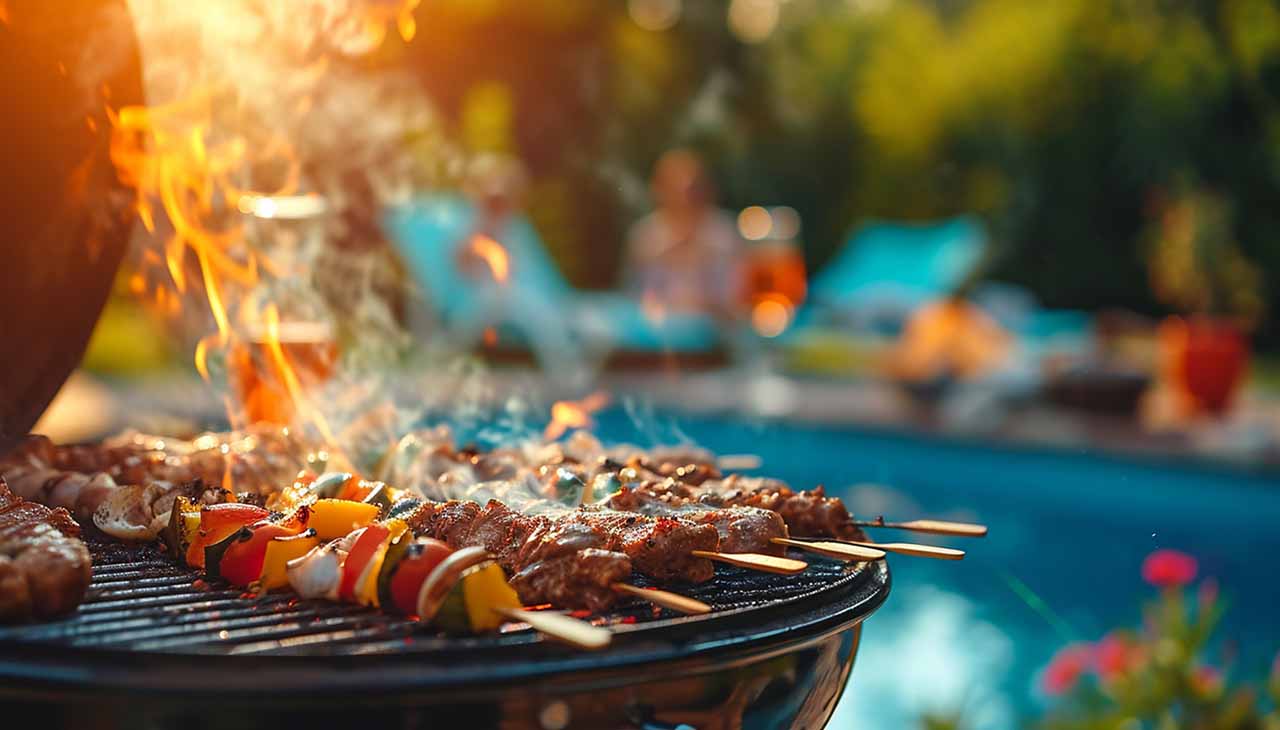Introduction to the World of Wild Game
In a world where farm-to-table dining reigns supreme, there’s an even more extraordinary culinary revolution gaining momentum—wild game. For centuries, wild game has been a staple in the diets of hunters and gatherers. Today, it’s making a sophisticated comeback in modern culinary culture. From venison stews slow-cooked to perfection to the rich flavors of wild boar, wild game offers a gastronomic experience unlike any other.
Wild game is not just about food; it’s a lifestyle. It’s about the thrill of the hunt, the respect for the animal, and the joy of creating a meal with your own hands. This blog post aims to guide you through the exciting world of wild game, from sourcing your meat ethically to preparing mouthwatering dishes that will leave you and your guests craving more.
The Benefits of Consuming Wild Game
Nutritional Advantages
Wild game meats are packed with nutrients. Unlike farm-raised animals, wild game feeds on natural forage, resulting in leaner meat with higher levels of omega-3 fatty acids, vitamins, and minerals. For example, venison is lower in fat and higher in protein compared to beef. It’s also rich in iron, which is essential for maintaining healthy blood cells.
Ethical Considerations
Choosing wild game over farm-raised meats offers ethical benefits as well. Wild animals live free until they are harvested, avoiding the often harsh conditions of commercial farming. This means no confinement, no antibiotics, and no growth hormones. By consuming wild game, you’re making a choice that supports animal welfare and environmental sustainability.
Environmental Impact
Sourcing wild game also has a lower environmental impact. When properly managed, hunting can help maintain healthy wildlife populations, ensuring that ecosystems remain balanced. Plus, wild game is a renewable resource, making it a sustainable choice for conscientious consumers.
A Guide to Sourcing Wild Game
Hunting and Ethical Considerations
Sourcing your own wild game can be an incredibly rewarding experience. However, it’s essential to hunt ethically and responsibly. Always respect hunting regulations, and ensure you have the necessary permits.
Sustainable Practices
When hunting, aim for a clean, quick kill to minimize the animal’s suffering. Use every part of the animal to honor its life and reduce waste. Sustainable hunting practices not only benefit wildlife populations but also ensure that future generations can enjoy the same opportunities.
Alternatives to Hunting
If hunting isn’t for you, there are other ways to source wild game. Many specialty butchers and online retailers offer a variety of wild game meats. Just make sure to choose suppliers who prioritize ethical and sustainable sourcing practices.
Collection of Delicious and Innovative Wild Game Recipes
Venison Stew with Root Vegetables
Ingredients:
- 2 lbs venison, cubed
- 4 cups beef broth
- 2 carrots, chopped
- 2 potatoes, cubed
- 1 onion, diced
- 2 cloves garlic, minced
- Salt and pepper to taste
Instructions:
- In a large pot, brown the venison cubes.
- Add the onions and garlic, cooking until translucent.
- Pour in the beef broth and add the carrots and potatoes.
- Simmer for 2-3 hours until the meat is tender.
- Season with salt and pepper. Serve hot.
Wild Boar Ragu
Ingredients:
- 2 lbs wild boar shoulder, shredded
- 1 can crushed tomatoes
- 1 cup red wine
- 1 onion, diced
- 2 cloves garlic, minced
- 2 tbsp olive oil
- Salt, pepper, and Italian herbs to taste
Instructions:
- Heat olive oil in a large pan and sauté the onions and garlic.
- Add the wild boar and brown thoroughly.
- Pour in the red wine and cook until it reduces by half.
- Stir in the crushed tomatoes and season with herbs, salt, and pepper.
- Simmer for 2-3 hours. Serve over your favorite pasta.
Pheasant Pot Pie
Ingredients:
- 2 pheasant breasts, cubed
- 2 cups chicken broth
- 1 cup peas
- 1 cup carrots, chopped
- 1 onion, diced
- 2 cloves garlic, minced
- 1 pre-made pie crust
- Salt and pepper to taste
Instructions:
- Preheat your oven to 375°F.
- In a pot, sauté the onions and garlic until soft.
- Add the pheasant cubes and brown them lightly.
- Pour in the chicken broth and add the peas and carrots.
- Simmer until vegetables are tender.
- Transfer mixture to a baking dish and cover with the pie crust.
- Bake for 25-30 minutes until the crust is golden brown.
Tips and Tricks for Preparing and Cooking Wild Game
Tenderizing the Meat
Wild game is leaner than farm-raised meat, which can make it tougher. Marinating your meat in acidic solutions like vinegar or wine can help break down the fibers and tenderize it.
Using the Right Cooking Methods
Slow cooking and braising are excellent methods for tough cuts of wild game. These methods help retain moisture and enhance the flavors. For tender cuts, quick searing and grilling work best.
Flavor Pairings
Wild game has a distinct, rich flavor. Pair it with robust ingredients like mushrooms, red wine, and herbs such as rosemary and thyme to complement and elevate the taste.
The Importance of Food Safety and Proper Handling
Field Dressing
Properly field dressing your game immediately after the hunt is crucial. This process helps cool the meat quickly, reducing the risk of spoilage and bacterial growth.
Storing the Meat
Once you’ve processed the meat, store it in a cooler with ice if you can’t refrigerate it right away. Freezing is another effective method to preserve wild game, but ensure it’s vacuum-sealed to prevent freezer burn.
Cooking Temperatures
Always cook wild game to the recommended internal temperatures to kill any potential pathogens. For example, cook venison to at least 160°F and game birds to 165°F.
Testimonials and Stories from Hunters and Chefs
Hunter’s Perspective
“I’ve been hunting for over 20 years, and there’s nothing quite like the satisfaction of preparing a meal from a deer I’ve harvested myself. It’s more than just food; it’s a connection to nature.” – Bill, seasoned hunter.
Chef’s Insight
“As a chef, wild game offers a canvas for creativity. Each type of game has its unique flavor profile, and it’s incredibly rewarding to bring out those flavors in a dish.” – Chef Maria, culinary expert.
Community Stories
Joining a community of wild game enthusiasts can enrich your experience. Sharing recipes, tips, and stories fosters a deeper appreciation for the craft and the cuisine.
Conclusion
From the thrill of the hunt to the satisfaction of a home-cooked meal, wild game brings a unique and enriching dimension to your culinary adventures. Whether you’re a seasoned hunter or just curious about trying something new, incorporating wild game into your diet offers numerous benefits, from nutritional advantages to ethical and sustainable eating.
Ready to take the plunge into the world of wild game? Share your own recipes and experiences with our community. And if you need more guidance, don’t hesitate to reach out to our network of expert chefs and hunters. Happy cooking!



